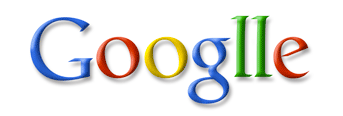Guiding Ideas:
- What is the purpose of a headline?
- What are the different types and styles of headlines in modern newspapers?
- How have computers changed the methodology employed in headline writing?
- What makes an effective headline?
Critical questions:
- What makes a headline "good" or "bad?"
- What is the difference between news headlines and feature headlines?
- How do you know if a headline will fit in the allotted space?
- What kinds of questions can I ask myself in determining whether my headline is effective?
Activity 1:
Read the following headlines collected in the
2007 edition of The Lower Case (Columbia Review of Journalism). Note, as a comment, what is incorrect or humorous in these headlines:
Guest-worker plan proposed
Texas police want bullet lodged in teenager's head
The (London) Independent 12.23.06
Fifth Avenue clogged with police shooting protestors
The Post-Standard (Syracuse, N.Y.) 12.17.06
U.S. pilots in Brazil crash back at home
The Press of Atlantic City 12.10.06
Will hanging help Bush?…
Activity 2:
What are the elements of headline writing? What are some purposes of headlines? Add your answers in the form of a WORDLE (word cloud). Then, post your Wordle as a blog post. You'll need to create your Wordle, then save it to the public gallery and finally, copy the HTML code that appears at the bottom of the page. You'll then paste the HTML code into your blog (when in "Edit HTML" mode, NOT in the "compose" mode).
Your blog title should be: Headline Wordle, Student Name. The labels for your post should be: lecture 7, review, headlines.
Here is an example of a Wordle that I did using information from Chapter 9:
 Activity 3
Activity 3:
Go to the
Huffington Post and read a few articles and then identify elements of strength and/or weaknesses you find in the headlines. Then read a short feature article, and similarly think about its headline. Examine differences in style, sensitivity, when humor is appropriate, inappropriate. Note the use of verbs, need for extensive "shorter word" vocabulary, etc. Then evaluate the headlines according to the "Characteristics of Good Headlines" in Chapter 9. Add your thoughts as a comment to this lecture post.
Activity 4:
Compare headlines from the
Huffington Post with column width, typographical specs and spacing (how the headline must also fit within predetermined space) as explained in Chapter 9. Did you find any headlines that were too long or too short? How might you change them to fit with rules noted in Chapter 9? Add a comment here.
Activity 5:
Review the vocabulary list on page 181. Note the importance of shorter synonyms to ensure clear and precise headlines. Choose ten words from the vocabulary list and add at least two other synonyms not noted in Chapter 9. Also, include two or three words that don't appear in this list along with your own shorter synonyms. Add your vocabulary information to a blog post. Title: Vocabulary Builder. Labels: lecture 7, headlines, stylistics. Remember to include an image in your post.
Activity 6:
If time permits, we can finish the class by adding to your E-Portfolios. You may choose to edit posts you have already written, or begin a new one.
Homework:
Practise spelling and review vocabulary
Come to class with a topic to add to your E-Portfolio
Note: Question mark sign image from
Illinois Wesleyan University and newspapers image from
24/7 Wall St.


























